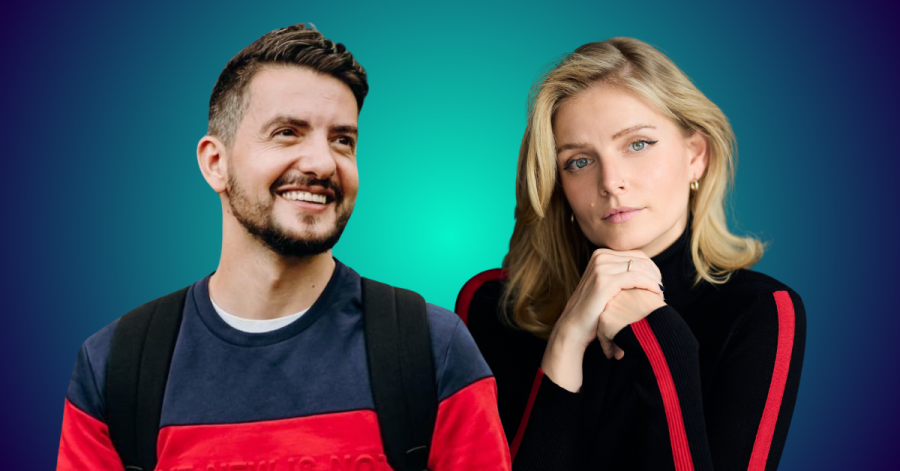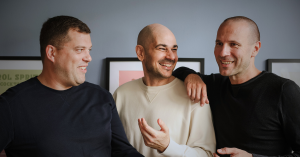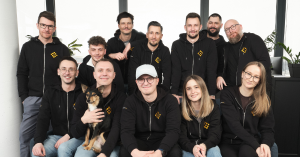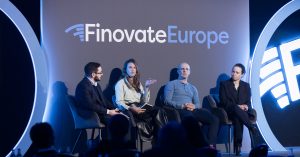In the gilded halls of Vienna’s Hofburg Palace, chandeliers sparkle, frescoes gaze down, and the echoes of centuries of European history hang in the air. This October, those walls will host something entirely different: the second edition of TEDAI, the only official European TED conference dedicated entirely to artificial intelligence.
For the two people behind it, Alina Nikolaou and Vlad Gozman, this moment is the culmination of a journey that began long before AI captured global headlines, and long before Vienna became a hub for the world’s biggest conversations about technology.
From Silicon Valley to Vienna
Nikolaou, originally from Greece, is a communication science scholar and long-time curator of TEDxVienna who has spent her career dissecting “the hypes, hopes and hypocrisies” that orbit emerging technologies. Gozman, born in Romania, a serial entrepreneur and one of the first generation of TEDx organizers, has helped shape TED’s European footprint since the early days. Together, they are the force behind TEDAI Vienna, the only official TED conference on artificial intelligence outside of North America.
“TED’s flagship, which has been taking place in North America for the last 40 years, is a generalist’s paradise — you’ll find a speaker for every topic you can imagine,” Nikolaou explains. “But there is a growing interest in a more thorough thematic deep dive; this is how the concept of TEDAI was born.”
For Gozman, it feels like a graduation of sorts. “Having hosted our first conference as early as 2010, we’ve seen and contributed to the rise of the TED brand as a cultural phenomenon. So you could say that after 15 years in this community we’ve graduated and moved to the next level.”
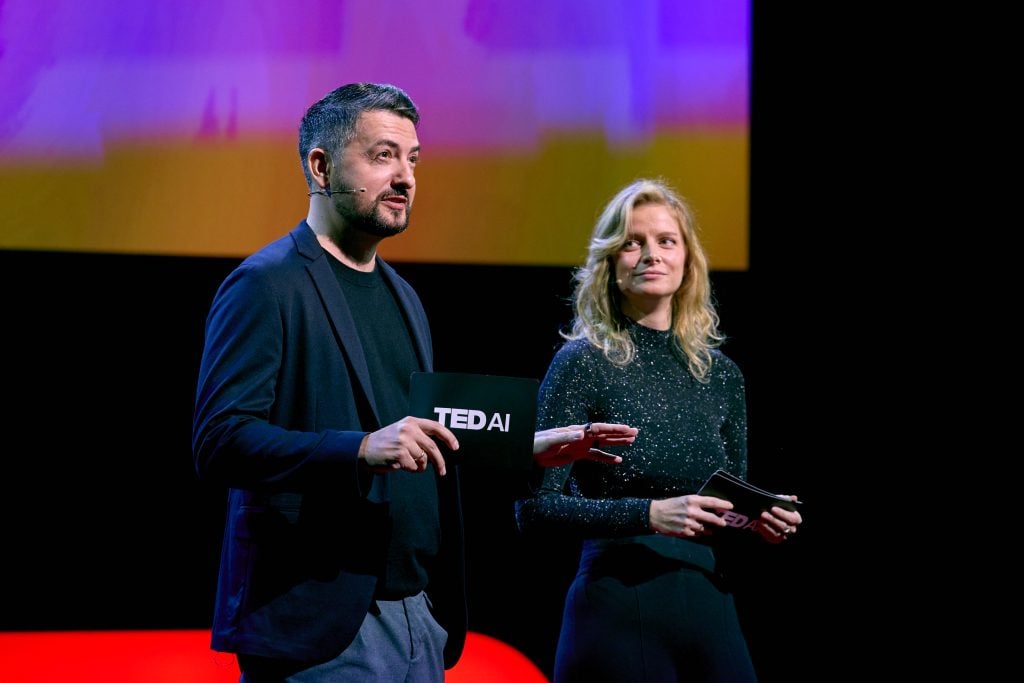
Scaling with intention
The idea of TEDAI first took shape in San Francisco in 2023. Vienna’s edition followed just a year later—but Nikolaou and Gozman are quick to clarify this wasn’t just regular case of applying for a license. “The decision was mutual between us, as local curators, and TED HQ, who were seeking for a team to bring this joint vision to life,” Nikolaou recalls.
At its core, TEDAI is an attempt to stretch the conversation about artificial intelligence far beyond Silicon Valley.
“We asked ourselves, what are the exciting AI ideas from South Africa, South America, Central Asia, or Europe? How can we unite philosophers, technologists, and business leaders, to come and immerse ourselves in meaningful debates about the world we are building with AI?”
In just one year, TEDAI Vienna has grown into a 3-day gathering expecting more than 1000 attendees. “Even though the interest would warrant more attendees,” Gozman adds, “we find this size to offer the best possibilities for participants to engage with each other and maximize their experience.” Curation extends beyond speakers to the attendees themselves. Participation is application-based, ensuring that the audience is as carefully composed as the stage.
Balancing optimism and skepticism
One of the challenges — and opportunities — of curating an AI conference is striking a balance between optimism and skepticism. TEDAI Vienna makes room for constructive debate and compromise. “TED is by definition an interdisciplinary conference. Our focus on AI as the common theme doesn’t negate that. On the contrary, it allows us to bring together different perspectives around one of the most pivotal topics of our generation,” Gozman explains. “While doing that we look for ideas that have timely global relevance and ideally will be heard at TEDAI for the first time.”
Nikolaou relishes curating sessions where talks contradict each other: “Perhaps my favorite moment during the conference is when we curate a session that includes several Talks that contrast each other; for example, when the first Talk celebrates agentic AI’s capacity to automate labor like never before, but the second Talk highlights the terrible effects it may bring on our critical thinking skills.”
That commitment shows in the 2025 speaker lineup:
- EU Executive Vice-President Henna Virkkunen on AI and European sovereignty;
- philosopher Joscha Bach on consciousness and superintelligence;
- Hardy Pemhiwa, CEO of Cassava Group, on building AI factories across Africa; and
- Mercedes Bidart, a South American entrepreneur creating AI-powered fintech for underserved communities.
- Historian Emily Kate Genatowski will bring a more intimate perspective, sharing what she’s learned from living with a humanoid robot for a year.
Rejecting the warehouse aesthetic
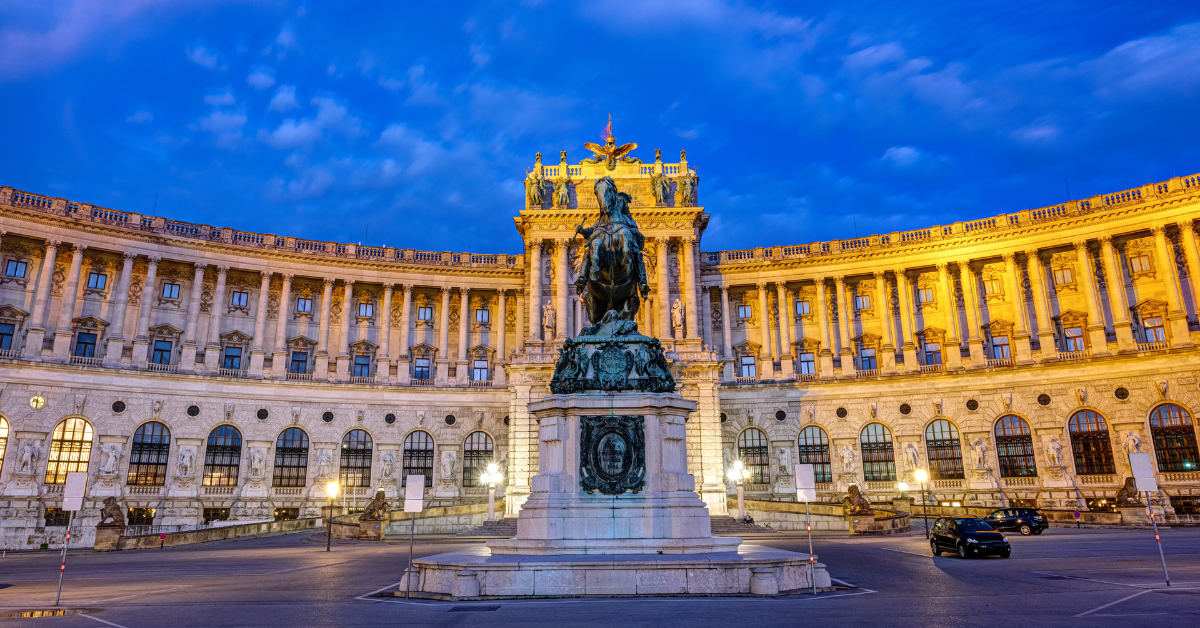
The conference is not only about what’s said on stage, but also where and how conversations unfold. Last year, TEDAI sprawled across three different venues; this year, it will be rooted in a single location: Vienna’s Imperial Palace, the Hofburg.
“For us, it was an intentional decision to reject the standard tech conference aesthetic, that gives warehouse vibes in cold rooms filled with artificial recycled air,” Nikolaou says. “Awe and wonder do not only start with a good TED Talk on stage, but it’s the architecture itself that gets your mind buzzing and opening up to new ideas.”
The conference program mirrors that philosophy: an opening gala styled like a Viennese ball, AI-themed dinners at City Hall, a Discovery Day with interactive sessions, and a late-night afterparty in the Hofburg. “TEDAI is designed as an experience attendees should fully immerse themselves,” Gozman says. “We’re facilitating conversations at every step. And putting them within such unique experiences will make them as memorable as possible.”
“Staying at home and hiding behind our screens isn’t an option”
If last year proved Vienna could host TEDAI, this year aims to cement it as Europe’s central gathering for AI’s future. For Gozman, the ambition for the future is straightforward: “Factoring in the unknowns of an ever faster changing world, we’ll do our best to make TEDAI in Vienna the leading yearly European forum for discussing the future of Artificial Intelligence.”
For Nikolaou, the motivation is personal, even urgent. “In a digital-first age it feels more and more urgent to carve out the time to meet, in person, and debate, discuss and build our shared reality. With that many geopolitical turbulences around us, many of them connected by the rapid AI developments, staying at home and hiding behind our screens isn’t an option.”
And perhaps that is what makes TEDAI Vienna different from every other AI conference crowding the calendar. It is not just about showing the latest model or dazzling with product demos — though, as Gozman teases, there will be “a few world-premier reveals that you could find only at TED.” It is about holding space, in real time and in real places, for the global conversation AI demands.

